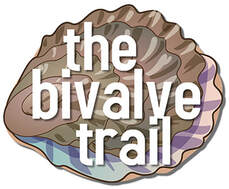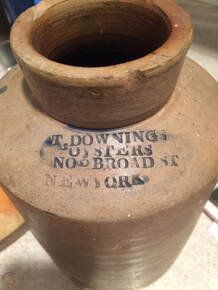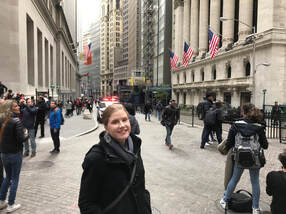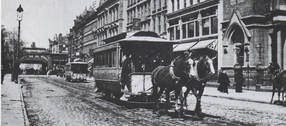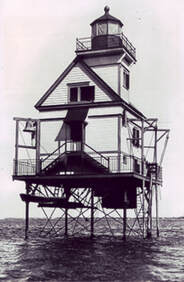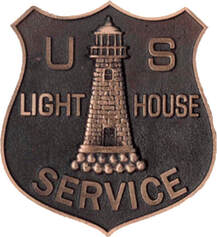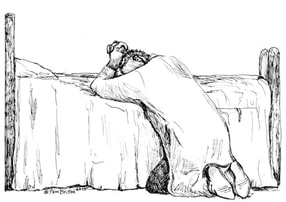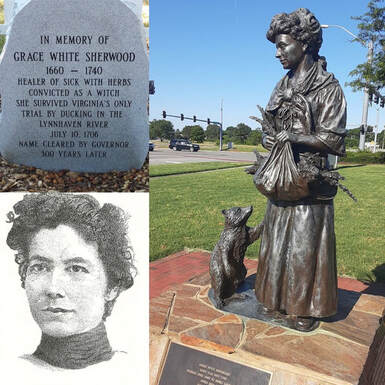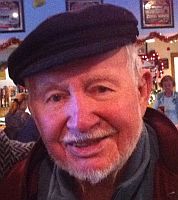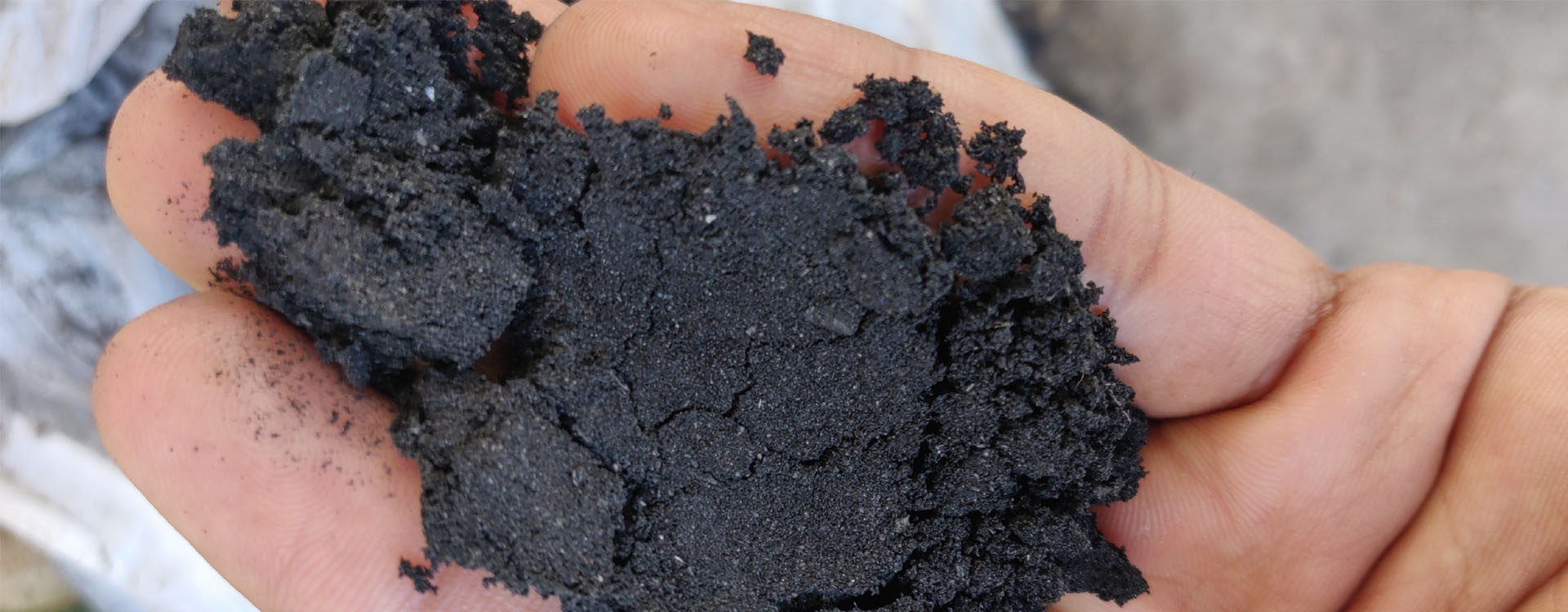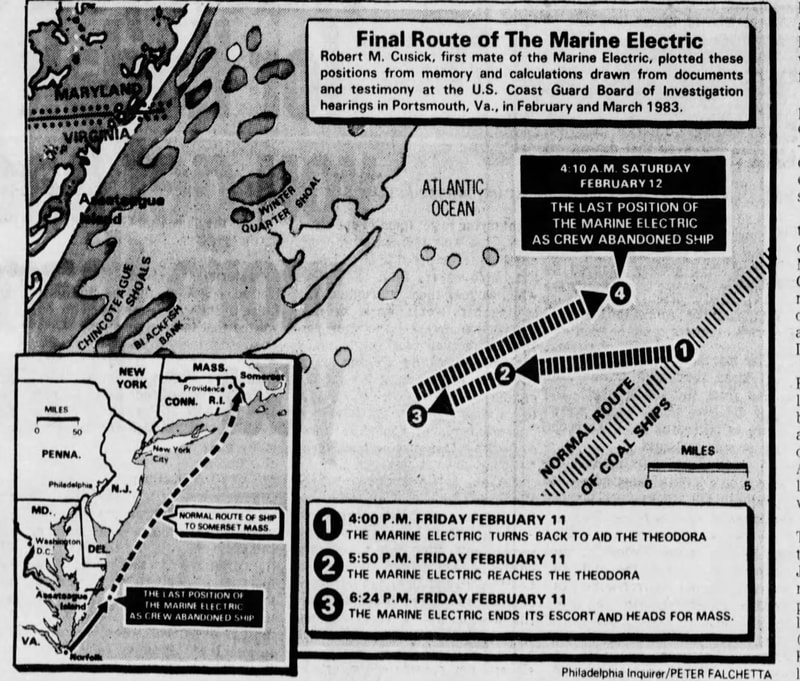Listen to THE BIVALVE TRAIL wherever you get your podcasts, or on Buzzsprout.
|
THE BIVALVE TRAIL is a dramatic podcast series by the Chincoteague Island Theatre Company that was created to tell local stories most people have not heard before.
Researched, written, and narrated by Lexi Hubb, THE BIVALVE TRAIL is a collaboration with Longtayle Studios and the Chincoteague Cultural Alliance.
Researched, written, and narrated by Lexi Hubb, THE BIVALVE TRAIL is a collaboration with Longtayle Studios and the Chincoteague Cultural Alliance.
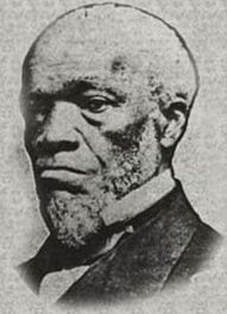 Thomas Downing circa 1866
Thomas Downing circa 1866
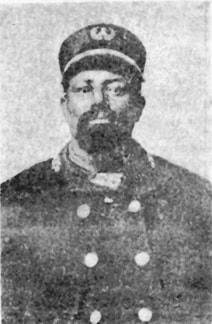 William Major Parker circa 1875
William Major Parker circa 1875
Episode 6: William Major Parker and the Lighthouse
Parker was one of the very few men of color employed by the United States Lighthouse Service. Born in the area of Hampton Roads Virginia, he was appointed to assistant lighthouse keeper at Assateague Lighthouse in 1875. Shortly after another lighthouse, Killick Shoals, was erected on the western side of Chincoteague Island in 1886, Parker was appointed Head Lighthouse Keeper.
Lighthouse Keepers faithfully served their duties to uphold the maintenance of lighthouses so their lights lit up at dusk, night after night. By keeping mariners and sailers safe at sea by aiding their navigation, lighthouses helped the newly-formed United States build a prosperous trade economy and become a world commerce worthy of recognition.
Lighthouses embodied and enabled the revolutionary American dream of being an independent nation.
Parker was one of the very few men of color employed by the United States Lighthouse Service. Born in the area of Hampton Roads Virginia, he was appointed to assistant lighthouse keeper at Assateague Lighthouse in 1875. Shortly after another lighthouse, Killick Shoals, was erected on the western side of Chincoteague Island in 1886, Parker was appointed Head Lighthouse Keeper.
Lighthouse Keepers faithfully served their duties to uphold the maintenance of lighthouses so their lights lit up at dusk, night after night. By keeping mariners and sailers safe at sea by aiding their navigation, lighthouses helped the newly-formed United States build a prosperous trade economy and become a world commerce worthy of recognition.
Lighthouses embodied and enabled the revolutionary American dream of being an independent nation.
|
Episode 7: Grace Sherwood, "The Witch of Pungo"
A healer, farmer, and midwife, Grace Sherwood is the only documented person to undergo witch-ducking; a harsh assessment to determine if she was truly a witch. Grace resided in the Colonial Virginia village of Pungo, now a southern part of Virginia Beach. She was wrongfully accused by multiple neighbors of practicing witchcraft when cotton crops failed and livestock died, not unusual events on a farm. Other tests during Grace's investigation were a search of her body for witch's marks and her home ravaged looking for a witch's book. The crucible of Grace Sherwood took place 14 years after the Salem Massachusetts Witch Trials; these trials were vastly different from each other because of the people who settled in the areas. Top left photo: A Memorial stone for Grace in the garden of the Old Donation Episcopal Church Bottom left: An artist's rendering of Grace Right photo; The statue of Grace in Virginia Beach |
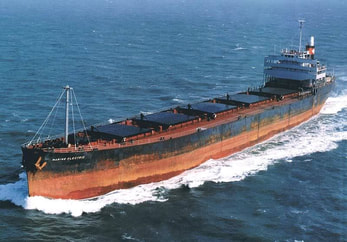 The SS Marine Electric
The SS Marine Electric
Episode 8: The Sinking of the SS Marine Electric
On February 10, 1983, the SS Marine Electric, a cargo ship built during World War II, departed port in Norfolk, Virginia carrying 34 crewmen and 24,600 tons of granulated coal. Their intended destination was Somerset, Massachusetts. In the early morning hours of February 12, the bulk carrier vessel sank 30 miles offshore from Chincoteague Island during a harsh winter storm because of inadequate hatch covers. Only 3 men survived, 31 lost their lives in the frigid Atlantic Ocean. The men on the Marine Electric never stood a chance against greed and negligence by multiple agencies, including the United States Coast Guard, The subsequent investigation and blame game was as tumultuous as the deadly storm. Despite the positive lasting effects and reforms within the US Coast Guard that would save the lives of future seamen, the sinking of the Marine Electric never should have happened.
Voice acting by Justin Aruck, Bill Troxler, and Thom Nolan. Featuring a the transcript of an interview with Reggie Stubbs Sr. who had to help transport the recovered bodies.
On February 10, 1983, the SS Marine Electric, a cargo ship built during World War II, departed port in Norfolk, Virginia carrying 34 crewmen and 24,600 tons of granulated coal. Their intended destination was Somerset, Massachusetts. In the early morning hours of February 12, the bulk carrier vessel sank 30 miles offshore from Chincoteague Island during a harsh winter storm because of inadequate hatch covers. Only 3 men survived, 31 lost their lives in the frigid Atlantic Ocean. The men on the Marine Electric never stood a chance against greed and negligence by multiple agencies, including the United States Coast Guard, The subsequent investigation and blame game was as tumultuous as the deadly storm. Despite the positive lasting effects and reforms within the US Coast Guard that would save the lives of future seamen, the sinking of the Marine Electric never should have happened.
Voice acting by Justin Aruck, Bill Troxler, and Thom Nolan. Featuring a the transcript of an interview with Reggie Stubbs Sr. who had to help transport the recovered bodies.
Sources Used
For Episodes 1-4:
Kurlansky, Mark. The Big Oyster Publisher: Random House Trade Paperbacks. New York, Random House Trade Paperback, 2006.
"Commending Downing's United Methodist Church on the occasion of its 225th Anniversary." House Joint Resolution No. 142. January 9, 2008.
Downing, George. “A Sketch of the Life and Times of Thomas Downing.” Black Gotham Archive, A.M. E. Church Review, Apr. 1887, http://archive.blackgothamarchive.org/sketchofthomasdowning.html.
“The Civil Rights Bill of 1866.” Historical Highlights, The US House of Representatives, 10 Jan. 2021, history.house.gov/Historical-Highlights/1851-1900/The-Civil-Rights-Bill-of-1866.
“History of the Streetcar.” BHRA: History of the Streetcar, The Brooklyn Historic Railway Association , www.brooklynrail.net/info_streetcar.html
The Editors of Encyclopaedia Britannica. “American Anti-Slavery Society.” Encyclopædia Britannica, Encyclopædia Britannica, 28 July 2016, www.britannica.com/topic/American-Anti-Slavery-Society.
Lam, Francis. “How Thomas Downing Became the Black Oyster King of New York.” The Oyster King and the Seagull Test, The Splendid Table, 14 Mar. 2018, www.splendidtable.org/story/2018/03/14/how-thomas-downing-became-black-oyster-king-new-york.
Schulte, David M. “History of the Virginia Oyster Fishery, Chesapeake Bay, USA.” Frontiers in Marine Science, Frontiers in Marine Science, 9 May 2017, https://doi.org/10.3389/fmars.2017.00127.
“The Venerable Thomas Downing - Black Oyster King of New York.” The Oysters My World, 20 Oct. 2014, theoystersmyworld.com/2014/10/20/the-venerable-thomas-downing-black-oyster-king-of-new-york.
“Rare 1800’s Thomas Downing Pickled Oyster Crock.” Black Americana Collectibles, 9 Feb. 2017, blackamericanacollectibles.biz/rare-1800-s-thomas-downing-pickled-oyster-crock-n-y-son-of-black-slaves.html.
Hewitt, John H. “Mr. Downing and His Oyster House: The Life and Good Works of an African-American Entrepreneur.” New York History, vol. 74, no. 3, 1993, pp. 229–252. JSTOR, www.jstor.org/stable/23182523. Accessed 4 Dec. 2020.
Korfhage, Matthew. “Thomas Downing: Pearl of Virginia.” Daily Press [Newport News, VA], 16 Feb. 2020, pp. 1–6.
Blue Point Brewing Company. “How New York City Became the Oyster Capital of the World.” Atlas Obscura, 24 Aug. 2018, www.atlasobscura.com/articles/oysters-new-york-city-history-blue-point.
“Worcester County and the Indians Who Had the Land First.” Facebook.Com, Worcester County, MD History. Bob Jones, Coordinator., 14 Sept. 2020, www.facebook.com/groups/Worcester.History.
Episode 6:
Lighthouse Digest. "He Died on His Knees:" The Amazing Story of Lighthouse Keeper William M. Parker. Timothy Harrison and Myrna J. Cherrix. January 2010. http://www.lighthousedigest.com/Digest/StoryPage.cfm?StoryKey=3319&fbclid=IwAR0dbeXXnCcQ8cFSeB0UGwwwWz4ojTOj9PAUNlN5dcw_9479gRTi3YKNGI8
Virginia Museum of History and Culture. "Hampton Institute and Booker T Washington." https://virginiahistory.org/learn/historical-book/chapter/hampton-institute-and-booker-t-washington#:~:text=Hampton%20Normal%20and%20Agricultural%20Institute,fifty%20cents%20in%20his%20pocket.
Britannica.com,. "Pendleton Civil Service Act, United States 1883."The Editors of Encyclopaedia Britannica. https://www.britannica.com/topic/Pendleton-Civil-Service-Act
National Park Service. United States Light House Service, "Lighthouse Keepers." https://www.nps.gov/articles/lighthouse-keepers.htm
National Park Service. Maritime Heritage Program. "Historic Lighthouse Preservation Handbook." https://uslhs.org/sites/default/files/attached-files/Historic%20Lighthouse%20Preservation%20Handbook.pdf
Episode 7:
“Grace Sherwood, The Witch of Pungo- Truth and Fiction.” (31 Oct. 2019). History Arch. http://historyarch.com/2019/10/31/grace-sherwood-the-witch-of-pungo-truth-and-fiction/
James, E. W. (1895). Grace Sherwood, the Virginia Witch. The William and Mary Quarterly, 4(1), 18–22. https://www.jstor.org/stable/1916177
“The Grace Sherwood Stone.” Old Donation Church. http://1bob9.blogspot.com/2009/06/the-grace-sherwood-stone.html
‘Trial of Grace Sherwood- The Witch of Pungo.” The Ferry Plantation. https://www.ferryplantation.org/witch-of-pungo
“Witch of Pungo, Grace Sherwood.” (2021, February 1). Colonial Ghosts. https://colonialghosts.com/grace-sherwood-the-witch-of-pungo/
Witkowski, Monica. "Grace Sherwood (ca. 1660–1740)" Encyclopedia Virginia. Virginia Humanities, (22 Dec. 2021). Web.
Episode 8:
“Death Ships.” Robert Frump and Timothy Dwyer. The Philadelphia Inquirer, May 1983.
“The Pacific War Online.” http://pwencycl.kgbudge.com/T/2/T2-SE-A1_class.htm
“Marine Electric: The Wreck that Changed the Coast Guard Forever.”
https://www.maritime-executive.com/features/marine-electric-the-wreck-that-changed-the-coast-guard-forever
“SS Marine Electric Disaster.” The History Channel.
Kurlansky, Mark. The Big Oyster Publisher: Random House Trade Paperbacks. New York, Random House Trade Paperback, 2006.
"Commending Downing's United Methodist Church on the occasion of its 225th Anniversary." House Joint Resolution No. 142. January 9, 2008.
Downing, George. “A Sketch of the Life and Times of Thomas Downing.” Black Gotham Archive, A.M. E. Church Review, Apr. 1887, http://archive.blackgothamarchive.org/sketchofthomasdowning.html.
“The Civil Rights Bill of 1866.” Historical Highlights, The US House of Representatives, 10 Jan. 2021, history.house.gov/Historical-Highlights/1851-1900/The-Civil-Rights-Bill-of-1866.
“History of the Streetcar.” BHRA: History of the Streetcar, The Brooklyn Historic Railway Association , www.brooklynrail.net/info_streetcar.html
The Editors of Encyclopaedia Britannica. “American Anti-Slavery Society.” Encyclopædia Britannica, Encyclopædia Britannica, 28 July 2016, www.britannica.com/topic/American-Anti-Slavery-Society.
Lam, Francis. “How Thomas Downing Became the Black Oyster King of New York.” The Oyster King and the Seagull Test, The Splendid Table, 14 Mar. 2018, www.splendidtable.org/story/2018/03/14/how-thomas-downing-became-black-oyster-king-new-york.
Schulte, David M. “History of the Virginia Oyster Fishery, Chesapeake Bay, USA.” Frontiers in Marine Science, Frontiers in Marine Science, 9 May 2017, https://doi.org/10.3389/fmars.2017.00127.
“The Venerable Thomas Downing - Black Oyster King of New York.” The Oysters My World, 20 Oct. 2014, theoystersmyworld.com/2014/10/20/the-venerable-thomas-downing-black-oyster-king-of-new-york.
“Rare 1800’s Thomas Downing Pickled Oyster Crock.” Black Americana Collectibles, 9 Feb. 2017, blackamericanacollectibles.biz/rare-1800-s-thomas-downing-pickled-oyster-crock-n-y-son-of-black-slaves.html.
Hewitt, John H. “Mr. Downing and His Oyster House: The Life and Good Works of an African-American Entrepreneur.” New York History, vol. 74, no. 3, 1993, pp. 229–252. JSTOR, www.jstor.org/stable/23182523. Accessed 4 Dec. 2020.
Korfhage, Matthew. “Thomas Downing: Pearl of Virginia.” Daily Press [Newport News, VA], 16 Feb. 2020, pp. 1–6.
Blue Point Brewing Company. “How New York City Became the Oyster Capital of the World.” Atlas Obscura, 24 Aug. 2018, www.atlasobscura.com/articles/oysters-new-york-city-history-blue-point.
“Worcester County and the Indians Who Had the Land First.” Facebook.Com, Worcester County, MD History. Bob Jones, Coordinator., 14 Sept. 2020, www.facebook.com/groups/Worcester.History.
Episode 6:
Lighthouse Digest. "He Died on His Knees:" The Amazing Story of Lighthouse Keeper William M. Parker. Timothy Harrison and Myrna J. Cherrix. January 2010. http://www.lighthousedigest.com/Digest/StoryPage.cfm?StoryKey=3319&fbclid=IwAR0dbeXXnCcQ8cFSeB0UGwwwWz4ojTOj9PAUNlN5dcw_9479gRTi3YKNGI8
Virginia Museum of History and Culture. "Hampton Institute and Booker T Washington." https://virginiahistory.org/learn/historical-book/chapter/hampton-institute-and-booker-t-washington#:~:text=Hampton%20Normal%20and%20Agricultural%20Institute,fifty%20cents%20in%20his%20pocket.
Britannica.com,. "Pendleton Civil Service Act, United States 1883."The Editors of Encyclopaedia Britannica. https://www.britannica.com/topic/Pendleton-Civil-Service-Act
National Park Service. United States Light House Service, "Lighthouse Keepers." https://www.nps.gov/articles/lighthouse-keepers.htm
National Park Service. Maritime Heritage Program. "Historic Lighthouse Preservation Handbook." https://uslhs.org/sites/default/files/attached-files/Historic%20Lighthouse%20Preservation%20Handbook.pdf
Episode 7:
“Grace Sherwood, The Witch of Pungo- Truth and Fiction.” (31 Oct. 2019). History Arch. http://historyarch.com/2019/10/31/grace-sherwood-the-witch-of-pungo-truth-and-fiction/
James, E. W. (1895). Grace Sherwood, the Virginia Witch. The William and Mary Quarterly, 4(1), 18–22. https://www.jstor.org/stable/1916177
“The Grace Sherwood Stone.” Old Donation Church. http://1bob9.blogspot.com/2009/06/the-grace-sherwood-stone.html
‘Trial of Grace Sherwood- The Witch of Pungo.” The Ferry Plantation. https://www.ferryplantation.org/witch-of-pungo
“Witch of Pungo, Grace Sherwood.” (2021, February 1). Colonial Ghosts. https://colonialghosts.com/grace-sherwood-the-witch-of-pungo/
Witkowski, Monica. "Grace Sherwood (ca. 1660–1740)" Encyclopedia Virginia. Virginia Humanities, (22 Dec. 2021). Web.
Episode 8:
“Death Ships.” Robert Frump and Timothy Dwyer. The Philadelphia Inquirer, May 1983.
“The Pacific War Online.” http://pwencycl.kgbudge.com/T/2/T2-SE-A1_class.htm
“Marine Electric: The Wreck that Changed the Coast Guard Forever.”
https://www.maritime-executive.com/features/marine-electric-the-wreck-that-changed-the-coast-guard-forever
“SS Marine Electric Disaster.” The History Channel.

